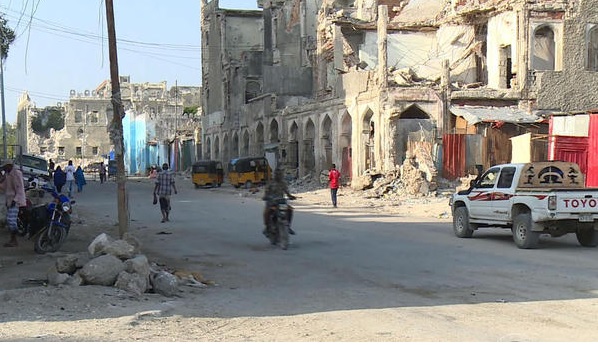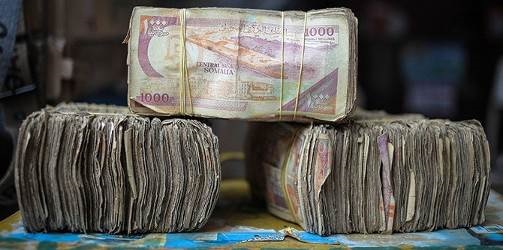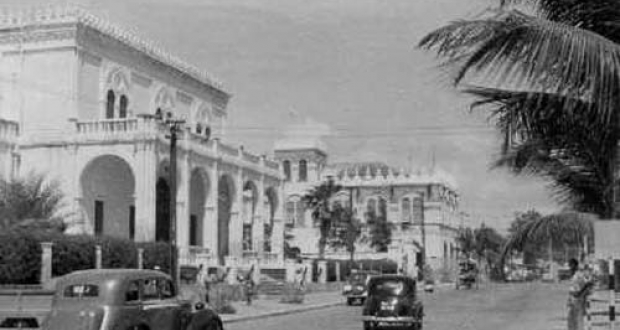By Osman H. Yusuf
Somalia – Economy, national currency and foreign exchange
To rebuild and develop an economy, particularly in the case of a country emerging from long years of devastation, like Somalia, a public-private sector partnership is in order to promote the economy, improve the standard of living of the people and lift the country out of the poverty trap. In the past two decades, the private sector which is considered the main engine of economic growth in normal circumstances has shown sustainable resilience to take care of the basic needs of the people during those long and difficult years. International aid was pouring into the country during the terms of previous governments through NGOs – local and foreign – under programs and projects sponsored by international or financial institutions and by organizations of friendly countries but in the course of the last couple of years some of the international community’s active programs or projects for livelihoods and development on a small scale seem to have suffered either a setback, or dried up, or have substantially been scaled down or some even terminated as changes were probably made to prior deals with the international community.

The estimates and projections put out by the international financial institutions on Somalia’s economic growth for this and next year at 3.2% and 3.5%, respectively, may shrink due to external shocks compounding existing internal challenges. Moreover, data based on past years’ growth may not have reflected the actual performance particularly for the real sector since collecting reliable information on economic activities in an environment beset by insecurity is not only a daunting task but also very risky and that makes it necessary for these institutions to often revise the data as new information is made available.
The productive sector of the economy currently at a slow pace of production has yet to recover from decades of devastation and may be affected by unforeseen adverse shocks in the next few years and so will be other sectors which have so far survived and performed relatively well. A promising sector with great potential is the fisheries which can be a bonanza for the country if put on a scale large enough to be mutually exploited under strict conditions, safeguards and regular monitoring. Most Physical Infrastructure, except airports and ports to which some improvements have been made, need to be thoroughly rehabilitated.
Furthermore, unemployment is very high in the country – estimated at over 70% – due to adverse circumstances prevailing since 1991 and this government has been unable to create significant employment opportunities especially for the youth who represent the highest percentage of the workforce and whose skills need to be upgraded. Hopefully the socio-economic situation will further improve in the coming years if the government takes the necessary steps to put in place the right policies and a mechanism to ensure favorable terms and conditions for private businesses and strengthen the financial sector enabling them to possibly absorb the largest number of the unemployed. Government can also help establish small business administration and/or improve existing small business schemes or create new ones to empower women, the poor and the disabled.
Considerable efforts have been made by the government to improve its relations with the international financial institutions and it successfully met the conditions set by them to be eligible for technical and financial assistance. As a result, debt relief has been granted to Somalia on phases and further conditions will have to be fulfilled in the next few years to obtain final debt relief. It’s time, therefore, for the country to be prepared and improve the ground – legal and institutional – to restart doing business with the rest of the world to help achieve rapid economic growth and development. However, the impact of the pandemic that is now ravaging the whole world will have negative consequences on the economy as the country may be the least equipped to deal with the Covid-19 disease.
Besides the debt relief success, an equally or more important achievement would have been the announcement of the printing and introduction of much awaited national currency on a phased out plan within a reasonable time period to provide the economy with the liquidity it needs to grow and develop, thus enhance the role of the financial sector and give new impetus to business and investor activities in the country.

The government and business community could team up to share the cost of printing banknotes and coin to be gradually introduced into the market, starting with the smaller denominations of notes for retail business on the basis of a timetable agreed with the printer company. The obsolete 1000-SoSh note now in circulation – a relic of years of statelessness – has been flooded in the market by rouge elements. It is hazardous and extremely dangerous to the health of the people. It needs to be immediately withdrawn from circulation and possibly replaced by a new version of a 1000-SoSh note if no other solution is, as of now, in the pipeline or on the table.
To promote a free market economy the government must ensure a peaceful atmosphere where investors, domestic and foreign, as well as big and small businesses thrive side by side. Monopolistic behavior by big companies must not be allowed or tolerated as it distorts the free market to function properly. Private banks in the country are very much active in providing banking and finance services to the people but to a limited extent due to the very short supply of foreign exchange (US dollar availability). Thus, the absence of a national currency by which sufficient and measured quantity can be produced for the economy represents a major constraint to boost business and investment activities, not counting the frustration associated with not having to use a national currency.

It’s worth pointing out the fact that no economy of any country has ever developed and prospered without using its own currency, a symbol that’s cherished as the nation’s flag. Therefore, printing Somali Shilling notes and coin and their introduction into the economy should be given the highest priority by the government as an act of sovereignty. The adoption of a foreign currency like the dollar is but an expedient meant to serve during a short time of crisis only and not as a substitute for a legal domestic currency indefinitely. It should be appreciated that in the long run the disadvantages of using a foreign currency such as the US dollar far outweigh its advantages in the short run.
The Central Bank of the country is the only institution vested with the legal authority to issue banknotes and coin into the economy and, at the same time, to safeguard the value of the national currency. It is also the responsibility of the Central Bank to make sure that the economy is provided with sufficient liquidity through the banking system. At present the banking and financial system of Somalia are locked out of the international and payments and clearing arrangement as both the Central Bank and private banks are not allowed to have correspondent banking relationship with other banks in the world. This sanction imposed by major countries, if still in force, is unfair and must be reversed as the country is making progress to monitor and track money laundering and other unlawful money transfers.
As a result, foreign trade transactions – exports and imports and payments – cannot be carried out by the banks through the usual method of payment on behalf of customers/ businesses who are now compelled to use costly ways in business dealings with their counterparts in other countries.
Under the present circumstances, the exchange rate between the US dollar and Somali Shilling is at a prohibitive level and the supply of foreign exchange is currently sustained by the inflow of remittances from the diaspora which keeps the economy on life support together with international aid. For a national currency to be freely traded in the market there is a need to ensure sufficient foreign exchange to conduct trade and service transactions. As Somalia major traditional foreign exchange sources have been disrupted and only livestock seems to be somewhat recovering whereas other exports as a source of foreign exchange earnings are not significant, there is an urgent need to reignite the traditional export sector but also the non-traditional in the next few years with the necessary support in order for the country to earn badly needed foreign exchange and away from total reliance on remittances.
Had the Somali Shilling been in place as the official currency, foreign aid would have helped the Central Bank boost its official foreign exchange reserves and proceeds paid to the Treasury or any other party in local currency. Furthermore, the government could try to encourage the Somali business communities elsewhere to deposit their foreign exchange savings with the private banks in the country to help secure enough foreign exchange supply to allow a free foreign exchange market to operate at the appropriate time on the basis of demand and supply and thus set the Somali Shilling exchange rate with respect to other currencies, particularly, the US dollar in its daily dealings. The Central Bank will have to issue within a short period of time regulations and guidelines for the orderly functioning of the foreign exchange market and would intervene only in support of the rate of the Somali Shilling while conducting its official foreign transactions through its own foreign exchange holdings, not crowding out private investment.

The recently failed attempt on the part of the government to de-nationalize the governorship of the Central Bank was a big sigh of relief but the speed with which the Executive managed to have the Legislature approve an amendment to the Law of the Central Bank to that effect with only a few nays cast was not only surprising but mind boggling for anyone who appreciates the importance of an independent Central Bank for the country. It is the government’s utmost responsibility to restore the vital role of an independent Central Bank in line with international standard to enable it to fulfill its responsibilities and perform its functions for the benefit of the economy.
It is to be underlined that significant economic activity can only take place when sound and efficient banking system is in place, equipped with the necessary means of financing with the support and supervision of the Central Bank. The much referred to ‘economic activity take-off’ may be too early to celebrate because the real sector of the economy, unlike the service sector, is still in a state of weak growth and development due to prevailing adverse circumstances. Government budget allocations for social services and economic development are too little to produce meaningful results. Because of overall inadequate income currently generated by our small economy and limited capacity of the private banks to grant credit in foreign exchange, businesses are experiencing slow activities and reduced sales whereas investors are facing lack of investment funds.
Public and private spending, it must be mentioned, is the main factor boosting economic activities constrained only by the availability of real resources. Where there is no enough non-inflationary spending for consumption, investment, trade and services, economic conditions will exacerbate and the negative consequences on the unemployment will compound, and that scenario should be of great concern for a government determined to reconstruct, grow and develop its economy, improve the standard of living of its people and reduce poverty.
Osman H. Yusuf
Email: [email protected]
Related articles
–Part I – Somalia– Politics, Federal Government and Member States By Osman H. Yusuf
–SOMALIA: The Federal Institutions are being destroyed By Loyan Farah
–Centeral Bank of Somalia: where There’s Smoke, there is often fire By Abdelkarim A. Hassan
We welcome the submission of all articles for possible publication on WardheerNews.com. WardheerNews will only consider articles sent exclusively. Please email your article today . Opinions expressed in this article are those of the author and do not necessarily reflect the views of WardheerNews.
WardheerNew’s tolerance platform is engaging with diversity of opinion, political ideology and self-expression. Tolerance is a necessary ingredient for creativity and civility.Tolerance fuels tenacity and audacity.
WardheerNews waxay tixgelin gaara siinaysaa maqaaladaha sida gaarka ah loogu soo diro ee aan lagu daabicin goobo kale. Maqaalkani wuxuu ka turjumayaa aragtida Qoraaga loomana fasiran karo tan WardheerNews.
Copyright © 2024 WardheerNews, All rights reserved


